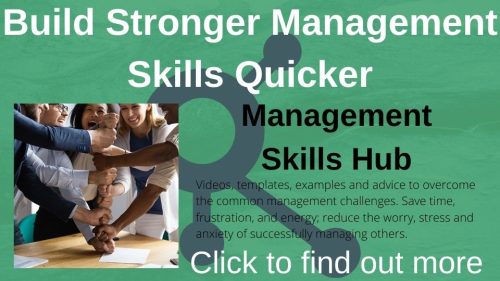10 Skills All Effective Managers Have

What makes an effective manager? I take you through 10 skills all effective managers have that make them successful.
Effective managers are those that get a lot done through their teams, keep their teams motivated through thick and thin, create the right environment for individual and team success, develop the skills of their team members so they can do more, manages all the people relationships and deals calmly with the pressures involved. Unsurprisingly, these managers are recognised and promoted consistently.
I have worked alongside a wide range of managers, observed, and coached many more, and the 10 skills that are straight away on my must have list – that each effective manager consistently demonstrates is listed to the right.
I am going to explain each skill, why each skill is important in managing others, and give you tips and where to get additional information.
This Article Covers:
- Good Self-awareness
- Very good at Building relationships
- Setting Clear Expectations
- Great Communication Skills
- Constantly Educating
- Effective Delegation
- Giving Useful Feedback
- Always Planning Ahead
- Good at Problem Solving
- Effective Decision Makers
Watch on YouTube
Listen on Podcast
All effective managers have: Good Self-awareness
Self-awareness is how aware you are of:
- What you are good at and what you are not so good at
- How your beliefs and reference points – built up over your life – influence your decisions and actions
- How aware you are of your own reactions to viewpoints, events, situations, challenges etc and how you manage these reactions
- Your Self-confidence and your own internal belief in your value and capabilities
Having good overall Emotional intelligence which incorporates self-awareness, self-management, Social Awareness, and relationship management is incredibly valuable to being a good effective manager.
And lastly, be clear what your own values are and how you use these to guide your own decisions and actions consistently with those you manage and interact with in work and outside of work.
I believe that you should get good at managing yourself, before you think about managing others. Being consistent in what you do is important to being fair to each of those you manage. Consistency of action drives trust and trust is very important for managers to build quickly and maintain consistently.
Tools
3 very accessible tools to help you learn more about yourself include
- Strengthfinders
- Myers Briggs
- Insights
In fact any tool that helps you find out a little more about yourself and how you view the world are useful. Take time to reflect on your own emotions and thoughts when you notice you are having a strong reaction to a statement, an event, a situation etc. Ask what is driving this reaction and is it appropriate. Experiment with different ways of reacting to different situations to develop your tool kit.
Professional Coaching programmes are also great to discover more about yourself and provide very useful feedback on lots of areas impacting your management skills.
Take the time to learn more about yourself – it will pay dividends in becoming a more effective manager.
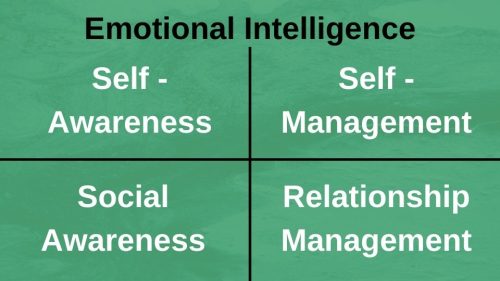
All effective managers: Good At Building Relationships
As a junior manager part of your day job is managing relationships. As you get into senior management, nearly all of your day job is about managing relationships. So to progress your career you must learn how to build relationships on a professional and also a personal level within the workplace and with staff at customers and suppliers.
8 actions to help you build better relationships faster at work include:
- Be a Likeable Person – be friendly, positive, welcoming, energetic, smile etc
- Meet Face To Face whenever you can – it beats phone and video calls by a mile
- Do Your Homework to create talking points on the professional and personal likes and dislikes of those you are meeting. Get them talking about themselves and listen.
- Find excuses to meet which gives you the best opportunity to build relationships
- Build a Personal as well as a Professional Relationship. We are all social creatures – the personal stuff matters at work too
- Aim to Help first and Ask second – this is reciprocity where we feel obliged to think well of and help those who help us first
- Deliver what you say you will – being nice will only get you so far. You have to deliver at work to build a solid professional relationship and be viewed as a reliable and competent co-worker or colleague
- Ensure Consistency of Effort and Action – consistency builds trust and trust is a must in all relationships. So do a good job and be friendly every time rather than just some of the time.
All effective managers: Always Set Clear Expectations
If your team members or other stakeholders in the business don’t know what is expected of them – how can they deliver to these expectations and how will you know what you will get back?
The same works in reverse. If you don’t agree clear expectations with those you are providing work to, how do you know if you are delivering what they need and how can you plan effectively?
Good steps to follow when setting expectations are:
- Thinking ahead so you know what capacity you or your team have to undertake additional work
- Understand the why of what you are being asked so you can proactively solve problems that come up
- Plan ahead so you put yourself in the best place to deliver what you commit to consistently
When you have done these three steps then
- Set expectations clearly with the other person so you all know what is going to be done, when and by whom
- Regularly communicate until the work is finished so there are no surprises, and you can adapt plans and expectations if needed
There is more that goes into setting clear expectations than most people think, which is why many people can improve in this area to the benefit of all.
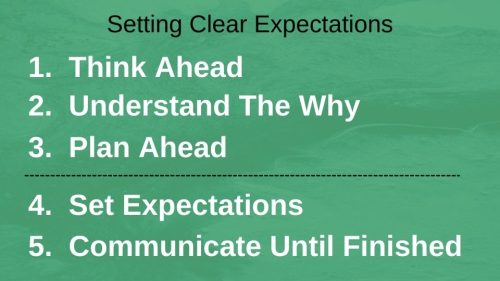
All effective managers have: Great Communication Skills
Communication skills cover a wide range of skills:
- Writing skills
- Storytelling
- Verbal communication in one-on-one settings through to talking to groups
- Presentation skills
- Persuasion skills
- Managing your tone and pace of voice
- Managing your body language
- Picking up clues from the other person’s tone & pace of voice and body language
We start learning communication skills while still in nappies and continue to practice and improve until the day we die.
Taking the time to put yourself in the other persons shoes and understand or at least appreciate their pressures, fears, reference points, drivers, learning styles, etc gives you a huge advantage in communicating effectively so the other party takes in what you are communicating to them in a positive way that they can relate to.
Tailor how you communicate to the audience you are communicating with as much as you are able. I personally find trying to avoid corporate speak – using words and sayings found typically in management textbooks – and trying to use everyday language as much as possible is really helpful.
Make your messaging easy to understand by keeping it well-structured and concise. Less is often more in terms of the key points in the messaging. Say the key message or most important points first and then justify them second. Repeat the key points needed. This way you make sure the other party takes in the message while they are most likely to be listening. This is the same as having a summary at the start of a report.
I also find being as honest as possible helps a great deal. Humans are generally good at spotting a fake – certainly in face to face conversations – so avoid giving messages that you don’t believe in where at all possible.
All effective managers practice: Constantly Educating
I have not found a better way than educating others to improve skills while creating goodwill, motivation and loyalty in others. I believe a massive part of being an effective manager is to support and help others to get the best out of themselves. There are so many ways of educating – 7 common ones being
- Training programmes
- Mentoring
- Coaching
- Buddy or peer learning systems
- Exposure to different challenges, tasks, problems with the right level of support
- Reading lists
- Video lists to watch
All of these education methods – to work really effectively requires you to understand the other person’s strengths and weaker areas, their ambitions, and motivations and what you are trying to achieve with education. Remember, you usually get more value from improving strengths than improving weaknesses and your team member will certainly enjoy this a lot more.
I have also found that spending dedicated time mentoring and coaching those you directly manage each week is very effective and helps build strong relationships with your team. You also learn a lot in these sessions about what they do, their ideas and solutions, their frustrations and what you can do to de-hassle their workdays.
All effective managers practice: Effective Delegation
Good delegation is another key skill of an effective manager. Delegation is not just telling a team member to go and do a task or project and then waiting for what you have asked for to be delivered on time and exactly how you want it. There is a lot more to effective delegation.
Good steps to take during a delegating cycle include
- Knowing what to delegate and what not to
- Playing to team member’s strengths as much as possible by giving them tasks they are suited to do
- Define the desired outcome, preferably with the person you are delegating to so everyone is clear about the goal to reach
- Explain why you are asking so they have the ability to deal with all the minor problems that will come up without having to ask you each time
- Provide the right level of resources, training and authority to the individual or team so they are equipped to succeed
- Provide support, mentoring and coaching so the individual is more likely to succeed and learn in the process
- Allow for learning time and for unforeseen problems to be resolved
- Give plenty of feedback – what is going well and what needs to be worked on. This maximises the learning opportunity for the other person and means you will need to get involved less next time
- Finally give praise to re-enforce positive behaviour where it is due.
The simpler the task or project you are delegating, the quicker you can do through these steps. For more complex projects or tasks you might go over several of these steps multiple times.
Learn to delegate well and you will be able to scale your time and deliver more – which gives you the platform for promotions and career progression within management.
All effective managers: Give Useful Feedback
Giving useful feedback is an absolute must to be an effective manager. Feedback is needed to improve what a team member does, for them to know what is being done well and what is falling short.
Effective managers give feedback – positive and negative – without offending the person, without creating resentment and without damaging the relationship. Remain calm, professional, and considerate when giving feedback.
A framework for giving specific feedback covers these points:
- Describe what exactly happened
- Go through the Impact of what happened
- Explain Why the action was good or bad
- Talk through How to improve in the future (for positive and negative feedback)
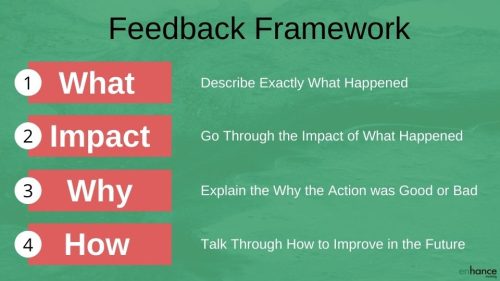
Your feedback should be:
- Designed to help the individual and aid their learning
- Timely – give the feedback soon after the event, issue or achievement
- Honest – tell it how it is – don’t beat around the bush, sugar coat it etc
- Be Specific – make the feedback detailed with examples and facts
- Focus it on the actions taken or not taken rather than opinions about the person
Giving feedback that the other person pays attention to and takes in – gets easier with practice. Always give feedback with the other person’s development as the first priority.
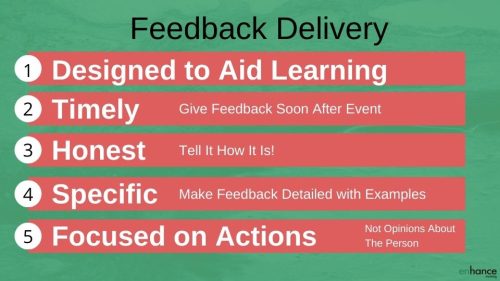
All effective managers: Always Planning Ahead
The ability to understand and keep track of all the outcomes they and their teams have to deliver, the queries and requests the team needs to respond to and the activities and projects that need to be undertaken to deliver – requires good planning skills.
If you are not
- looking ahead,
- weighing up the time it will take to complete an activity or project,
- thinking about who is the best person to do a task or respond to a query,
- what problems might come up that delay completion or add in complications,
- what might happen to take away team capacity and skills,
then you as a manager and your team will fall over quickly or fail to meet expectations of multiple stakeholders – I am sure you can picture what that disaster would look like for you.
Here are 6 tools used in planning from the simple to the complex:
- Using To do Lists
- Allocating tasks and projects against the staff you have available
- Creating Project plans
- Building Forecasts
- Budgeting
- Strategy creation
As your team gets bigger, get your team members to do more of the simpler planning. Keeping out of their way so they can plan can be as important as doing planning yourself.
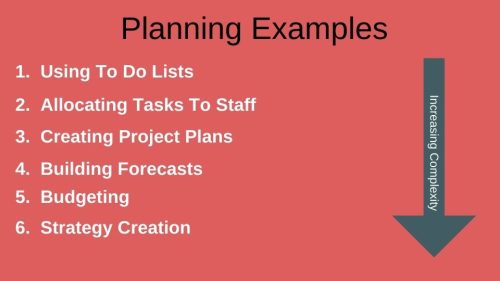
All effective managers have: Good Problem Solving Skills
We are all employed to solve problems. Typically as we get more senior in our careers and enter into the management ranks, we have to personally solve – or organise others to solve – a wider range of problems and / or more complex problems – and problem solve more often.
Understanding the problem that needs to be solved is usually the hardest part of problems solving. Getting through the symptom problems to find the root cause problem is where many problems solvers fall down. Solving a problem but missing the key problem is not nearly as effective. So take the time to keep asking questions and looking at data until you are sure you understand the full extent of the problem.
The next 4 steps to take in standard frameworks are:
- Generate options to solve the problem
- Evaluate the options and choose the best option
- Implement the solution
- Measure the impact of the solution or progress being made and adjust the solution as needed.
Implementing the solution is another step that many managers struggle with, particularly when there are many moving parts organise and taking people through change.
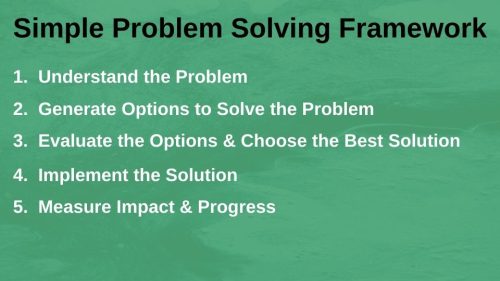
All effective managers: Effective Decision Makers
Managers typically make the decisions
- that have a bigger impact on the business or situation or
- are about situations out of the normal or
- are decisions on problems complex in nature
The consequences of getting these decisions wrong – for the company and for us as individuals – can make reaching a decision much harder. As we climb our career ladders, we get more and more practice at understanding different types of problems and working out how to make a decision.
I think a big mistake people make is thinking that all decisions can be made with the same approach. You come up against many different types of problems or situations. Some fall into situations you have seen before and thus one can apply the approach that worked before. Some situations are more complicated and need analysis to find a sensible way forward. Some situations are complex with no right or logical answer, or you may have to choose between several negative outcomes which makes getting to a decision hard. Sometimes you may have to make decisions in a fast changing environment where you don’t have time to analyse or get to a right answer – you just need to make a choice now.
Effective managers and leaders learn to shift their decision making styles to match changing business environments.
Take a look at the Cynefin framework which I think gives sensible frameworks to approach decision making in different situations.
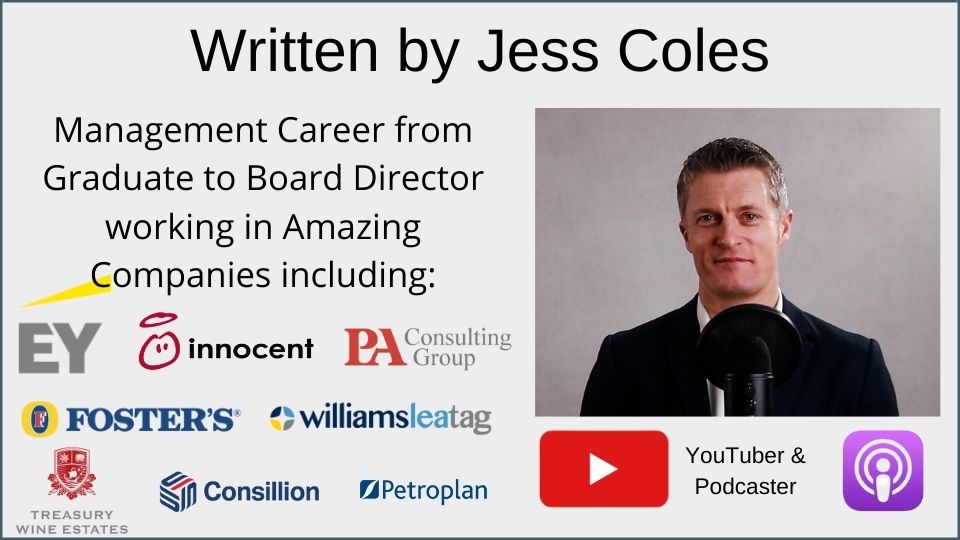
Keep trying to improve and strengthen your skills in each of these areas whether you are new into management or have made it to board level. The stronger these skills the more effective a manager and leader you will become.
If you’ve found this article useful please share it on social media and with friends.


